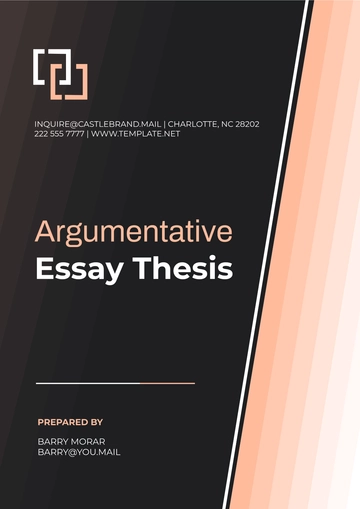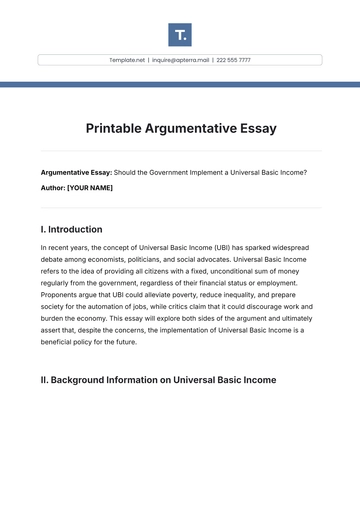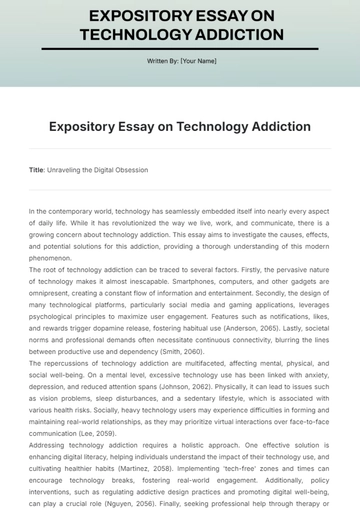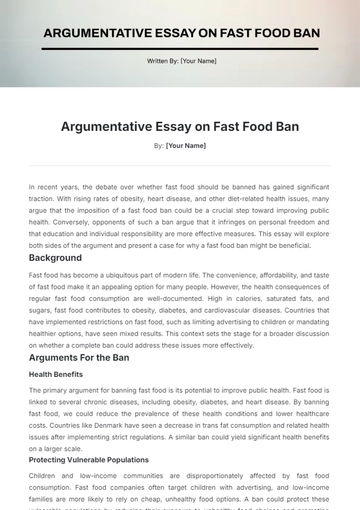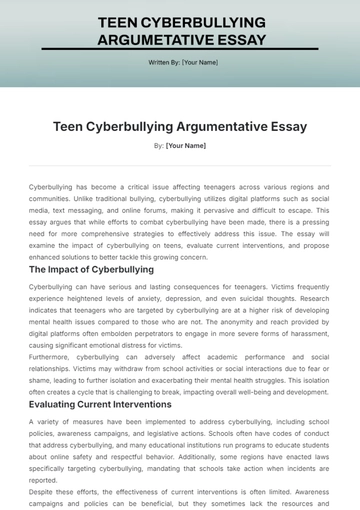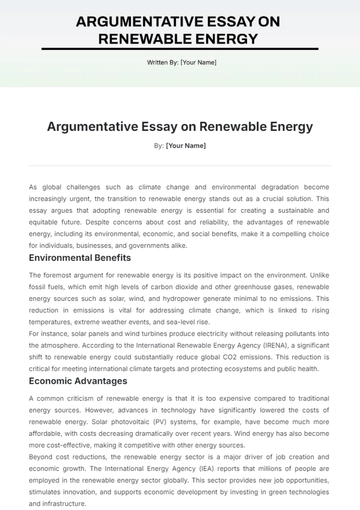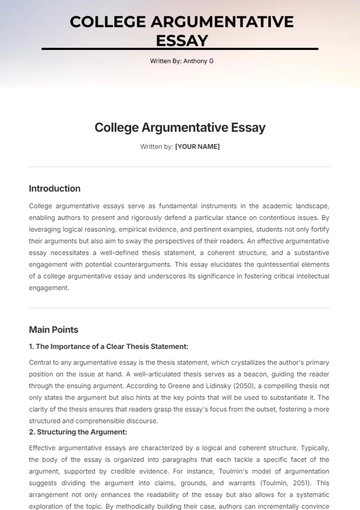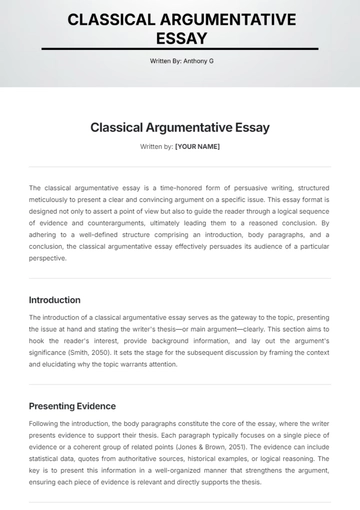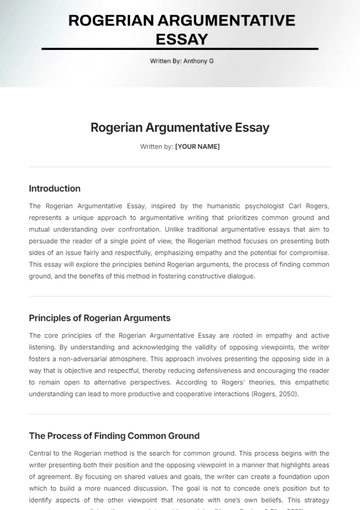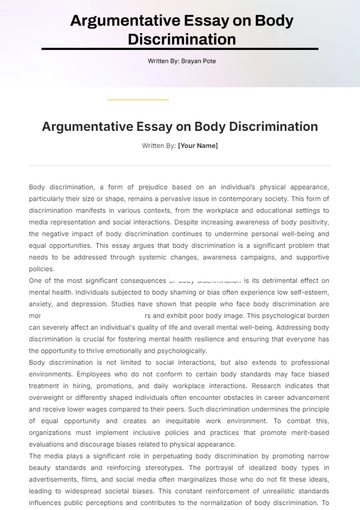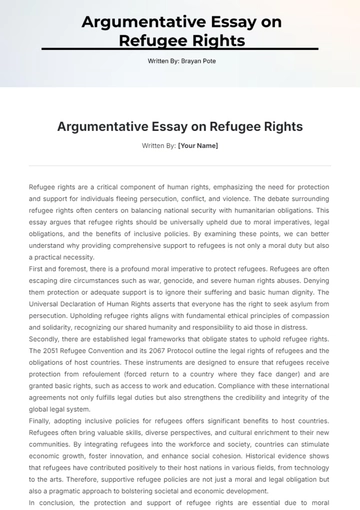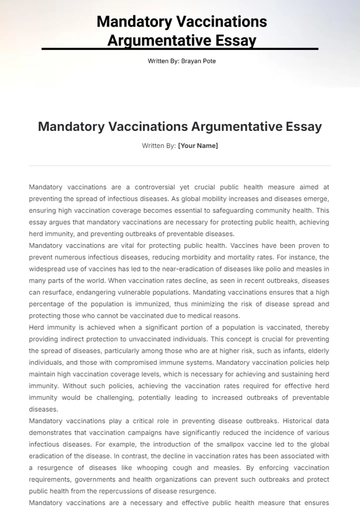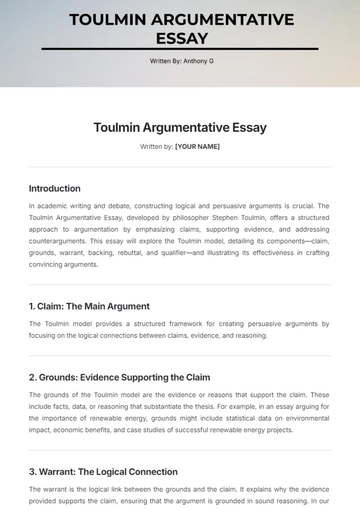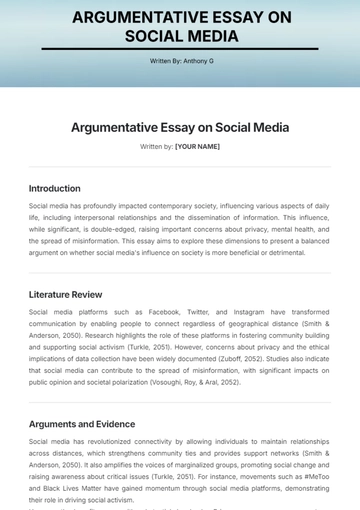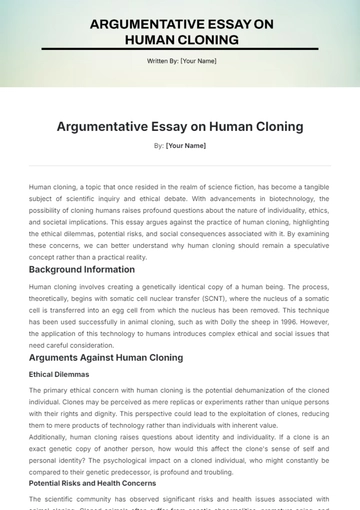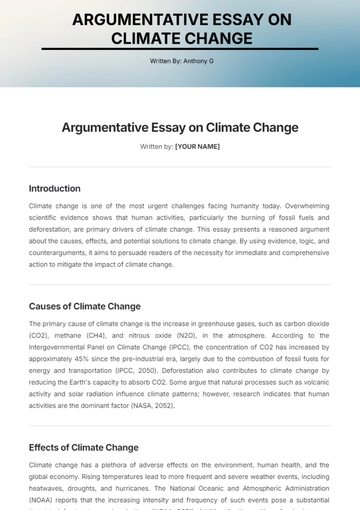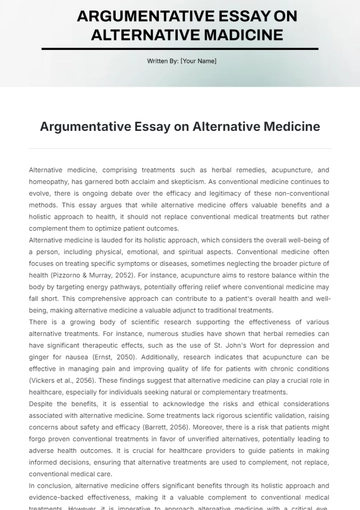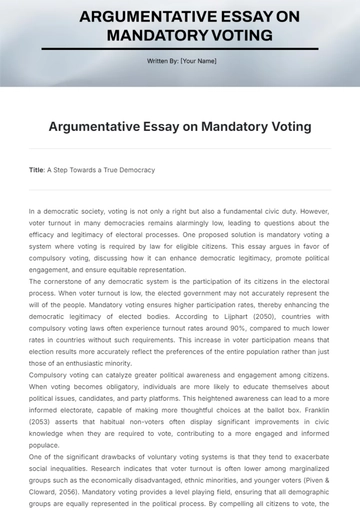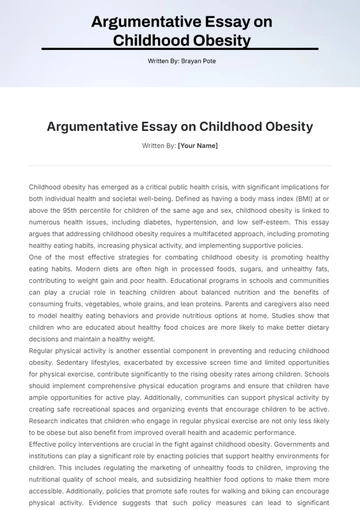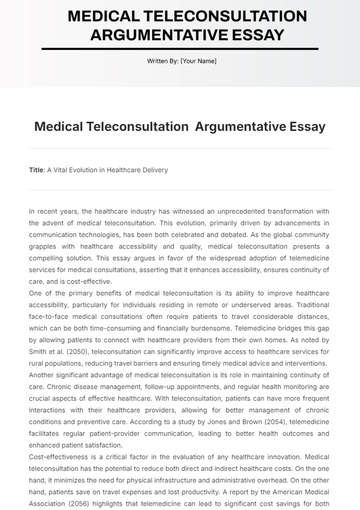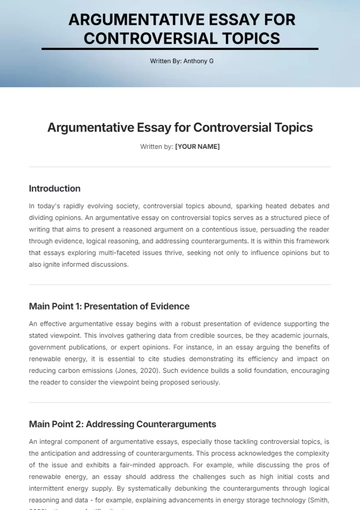Free Argumentative Essay on Animal Rights
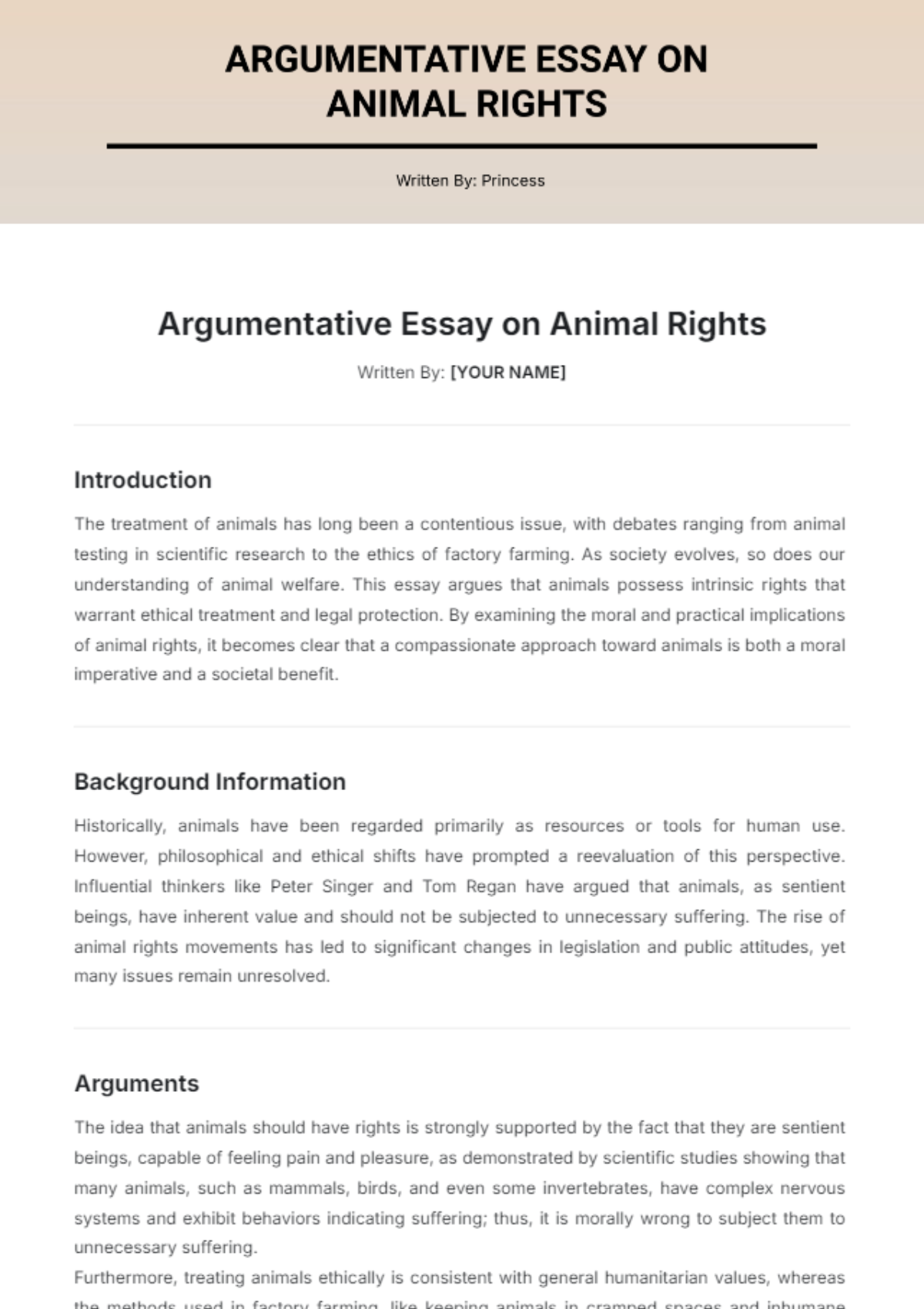
Written By: [YOUR NAME]
Introduction
The treatment of animals has long been a contentious issue, with debates ranging from animal testing in scientific research to the ethics of factory farming. As society evolves, so does our understanding of animal welfare. This essay argues that animals possess intrinsic rights that warrant ethical treatment and legal protection. By examining the moral and practical implications of animal rights, it becomes clear that a compassionate approach toward animals is both a moral imperative and a societal benefit.
Background Information
Historically, animals have been regarded primarily as resources or tools for human use. However, philosophical and ethical shifts have prompted a reevaluation of this perspective. Influential thinkers like Peter Singer and Tom Regan have argued that animals, as sentient beings, have inherent value and should not be subjected to unnecessary suffering. The rise of animal rights movements has led to significant changes in legislation and public attitudes, yet many issues remain unresolved.
Arguments
The idea that animals should have rights is strongly supported by the fact that they are sentient beings, capable of feeling pain and pleasure, as demonstrated by scientific studies showing that many animals, such as mammals, birds, and even some invertebrates, have complex nervous systems and exhibit behaviors indicating suffering; thus, it is morally wrong to subject them to unnecessary suffering.
Furthermore, treating animals ethically is consistent with general humanitarian values, whereas the methods used in factory farming, like keeping animals in cramped spaces and inhumane slaughtering, show a lack of concern for their welfare, lead to significant animal suffering, and threaten human health by promoting antibiotic resistance and zoonotic diseases; thus, implementing more humane agricultural practices can improve food safety and public health.
Additionally, the legal safeguarding of animal rights has yielded positive results. Nations with rigorous animal welfare regulations, like Switzerland and Germany, have observed advancements in animal care and increased public awareness. These cases illustrate that ethical animal treatment can be successfully incorporated into legal systems without major adverse effects on industry or society.
Counterarguments
Critics assert that animal rights laws interfere with economic freedom and consumer choice, alleging that such regulations might increase costs and reduce efficiency in food production; however, evidence indicates that humane practices can be economically sustainable, potentially offering long-term benefits like improved animal health and productivity while growing consumer demand for ethical products suggests a market trend favoring humane animal treatment.
Another viewpoint is that focusing on animal rights could distract from urgent human concerns, but prioritizing animal welfare does not undermine efforts to enhance human well-being; ethical treatment of both animals and humans is interlinked, showcasing wider principles of empathy and fairness.
Conclusion
In sum, advocating for animal rights is based on acknowledging their sentience and our duty to avoid inflicting needless suffering, aligning ethical animal treatment with humanitarian values, and demonstrating benefits in nations with strong welfare laws; despite counterarguments, the evidence affirms that animals merit protection and respect, underscoring the importance of our treatment of animals mirroring our highest ethical standards as society progresses, fostering a compassionate and just world for all sentient beings.
- 100% Customizable, free editor
- Access 1 Million+ Templates, photo’s & graphics
- Download or share as a template
- Click and replace photos, graphics, text, backgrounds
- Resize, crop, AI write & more
- Access advanced editor
Stand up for or explore the debates surrounding animal rights with Template.net's Argumentative Essay on Animal Rights Template. Fully editable and customizable, this template is designed to help you craft a persuasive argument on topics like animal testing, factory farming, and conservation. With our AI Editor Tool, you can quickly adapt the content to fit your unique perspective
